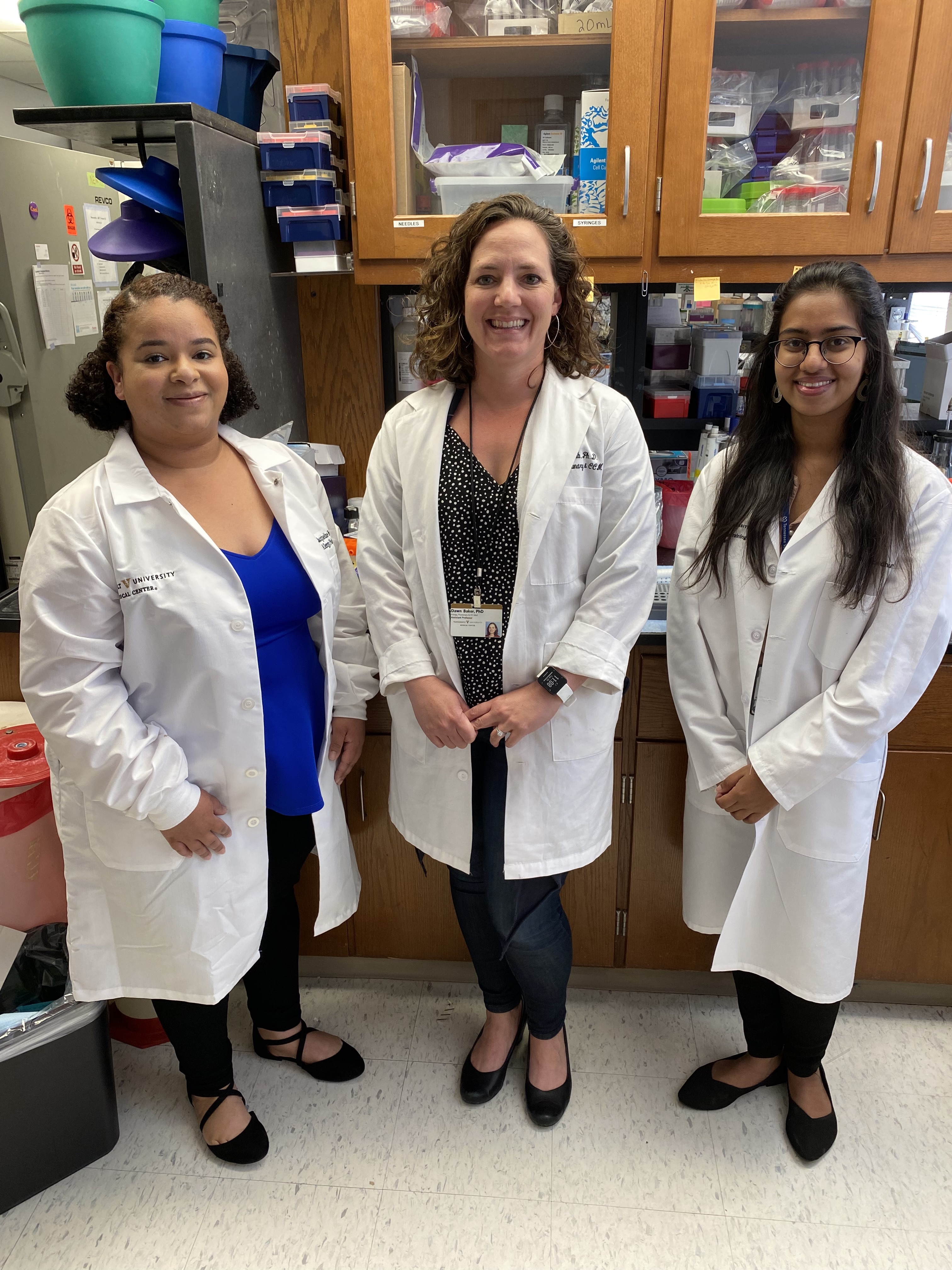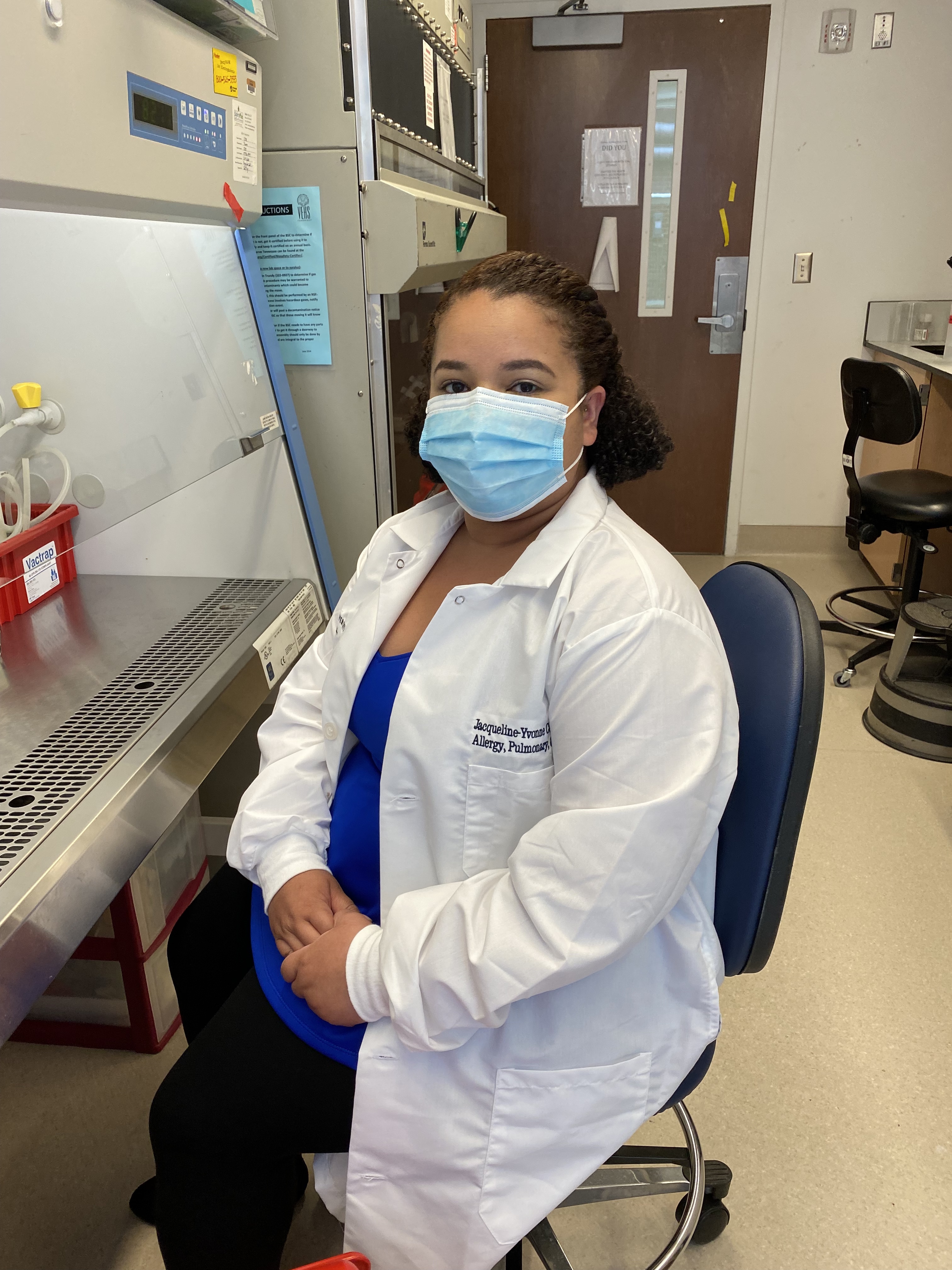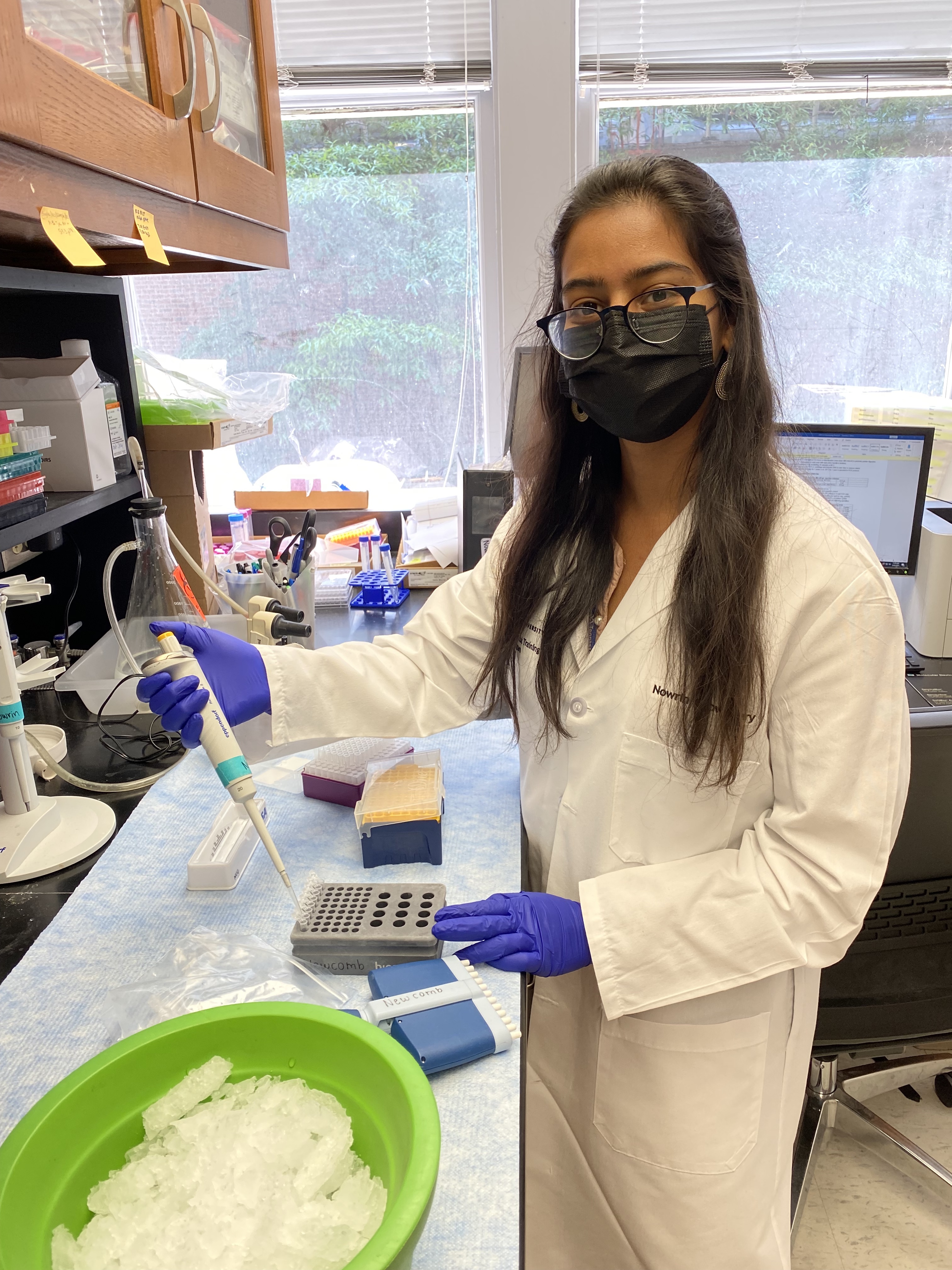Dr. Newcomb earned her undergraduate degree from North Carolina State University in 2002 and her Ph.D. from University of Michigan in 2007. She trained as a post-doctoral fellow in Dr. R. Stokes Peebles, Jr. M.D. laboratory at Vanderbilt University focusing on lung inflammation, viral infections, and T cell immune responses. In 2014, Dr. Newcomb started her laboratory at Vanderbilt to study how sex hormones regulate mechanisms of airway inflammation in asthma. Dr. Newcomb currently has 2 R01s to study these mechanisms.

Coffee: Starbucks or Dunkin'?
Dunkin'!
Best brunch in Nashville?
Sutler - although I rarely go to brunch anymore.
When you were 5, what did you want to be when you grew up?
I wanted to be a frog.
How, When, and Why did you decide to become a scientist?
I have always loved to solve puzzles and problems - the fundamentals of STEM. So I guess I was interested in becoming a scientist for most of my life. I initially went to college to become a meteorologist. However, I quickly switched to chemistry once I determined how much physics is involved in meteorology. During my junior year of college, I started working in a biomedical science laboratory and I was hooked. It was at this point that I knew I wanted to continue to work in science and solve puzzles that helped improve health.
How long have you been at VU/VUMC?
14 years! I am currently an Assistant Professor of Medicine. I initially came here as a post-doctoral fellow in 2007.
What does your lab do/study?
My laboratory studies how sex hormones regulate airway inflammation. This is important since there is a sex bias in asthma, and as adults, women have 2X increased asthma rates compared to men.

Newcomb Lab: Jacky Cephus (Lab Manager), Dawn Newcomb, and Nowrin Chowdhury (MSTP student)
How do you foresee these discoveries impacting human health?
Determining how sex hormones regulate mechanisms of airway inflammation is important for personalizing therapies based on the reproductive phase of life (childhood, puberty, menopause, pregnancy, etc) as well as potentially determining if alteration of sex hormone status may impact asthma symptoms and lung function.
What is one topic in your field that you are excited about right now?
I am excited by many different mechanisms in airway inflammation:
-
How is asthma prevalence (and airway inflammation) associated with sex hormones? We are very interested in determining how androgens decrease airway inflammation as the androgen, DHEA, may be a potential therapeutic for patients with asthma.
-
Why in early life do males have increased asthma prevalence compared to females? There are minimal sex hormones around prior to the initiation of puberty, yet male immune cells are more prone to activation/stimulation and cytokine production. Understanding how early immune education is different in males and females is critical for asthma and many other diseases.
What aspect of your career do you enjoy the most, and why?
I love my job and the fun I have coming to work (most) days. The most enjoyable aspect of my career is mentoring students and collaborating with others. I am an extrovert and so interacting with hard-working, intelligent, clever people from diverse backgrounds/training is a joy and blessing. My team and collaborators provide the perspectives and expertise needed to discover new mechanisms, but these teams also provide great friendships, laughs, and growth for me as a person. Further, watching students progress and learn how to ask important questions and rigorously test these questions is so much fun!
Have you had experiences that were important to shaping you as a scientist and mentor?
My mentors have been outstanding. At each stage of my career, my mentors provided me the infrastructure and support needed to succeed. I have been blessed with supportive mentors that helped me thrive by allowing me to pursue new lines of investigation and teaching me to communicate my findings (more) effectively to the scientific community and broad audiences.
What is one piece of advice you'd give to a new postdoc?
Big piece of advice for science:
Label, label, label! This includes your samples, your lab notebook, and your digital files. You are building a career. Five years from now, you will need to be able to find your data, protocols, or samples.
Big piece advice for life:
You are young and should enjoy this time! Make sure you are living your life in the present, not just planning for future.
Current lab members:
Jacky Cephus, B.S., M.L.I.
Lab Manager

Nowrin Chowdhury
MSTP Graduate Student

